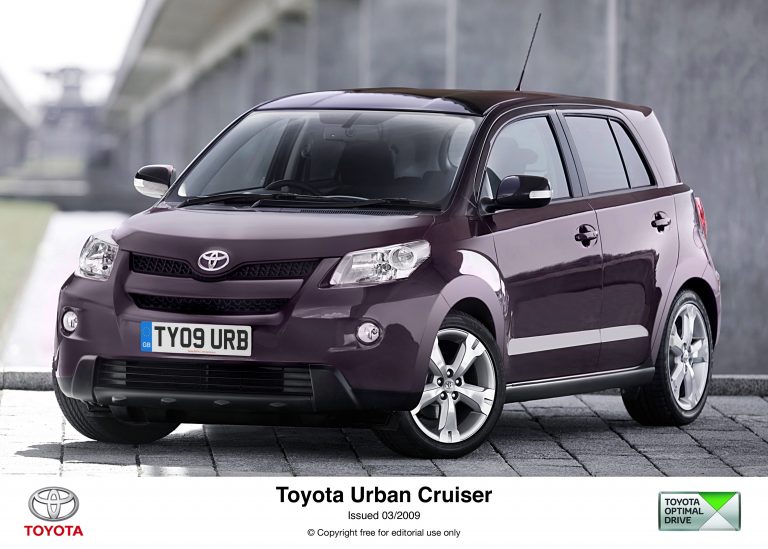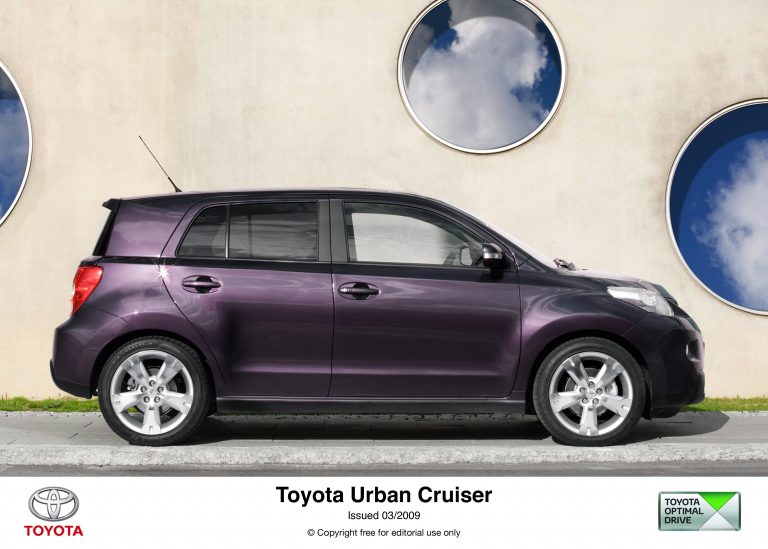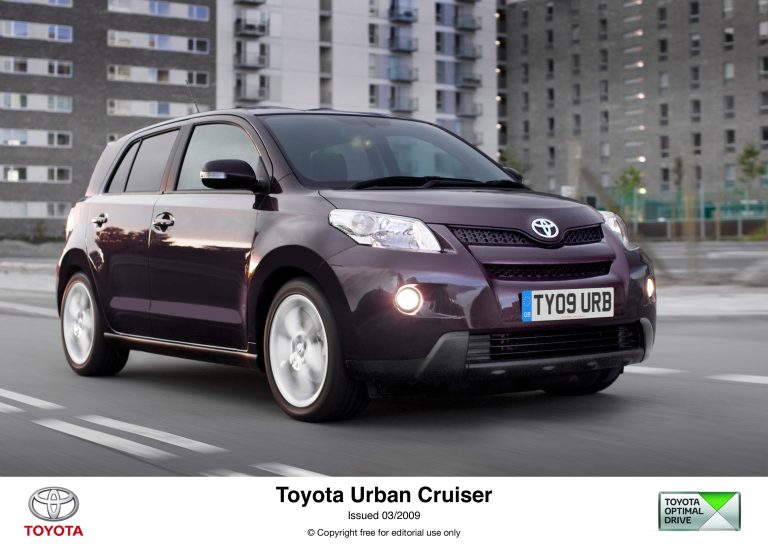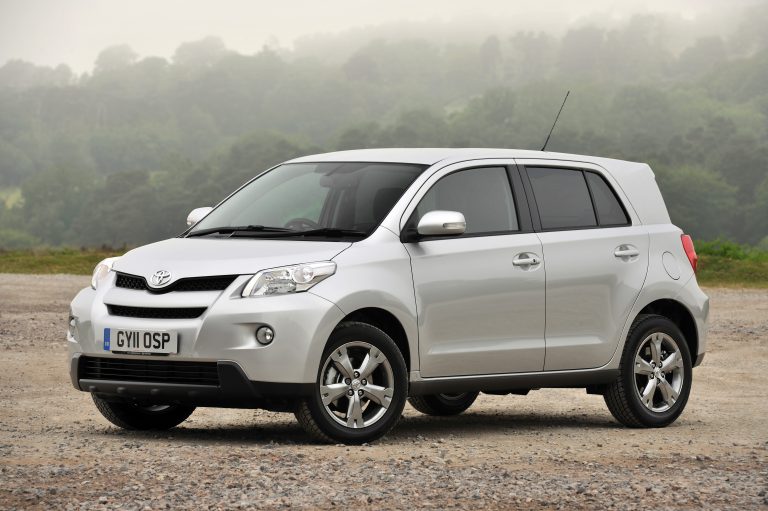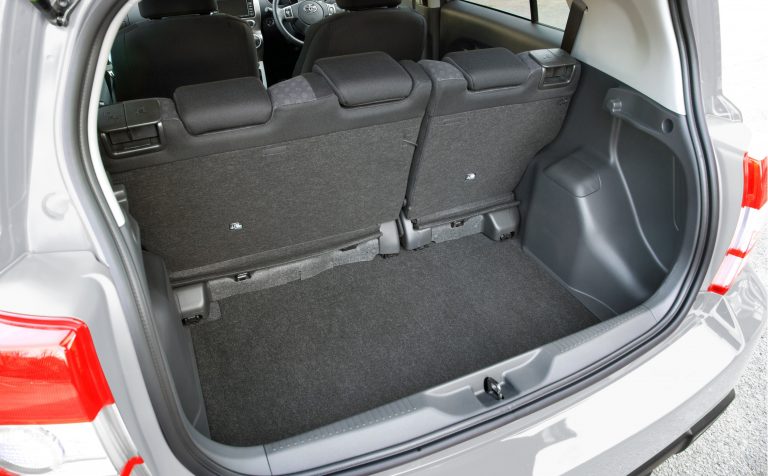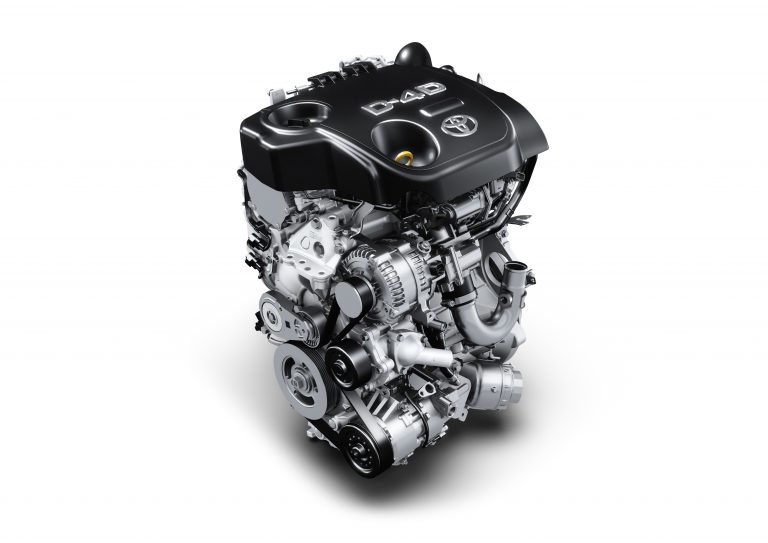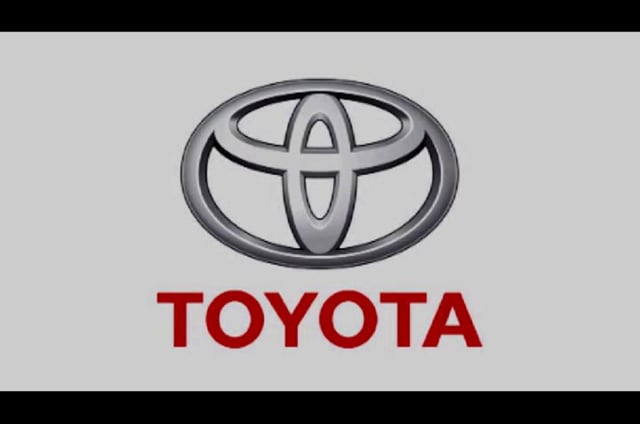Toyota Drives Down Emissions With New Urban Cruiser
KEY POINTS
- Class-leading environmental performance from Toyota’s new B-segment hatchback crossover
- Toyota Optimal Drive technology delivers more power with low emissions and strong fuel economy
- 1.33 Dual VVT-i 2WD model with Stop & Start emits 129g/km
- Urban Cruiser 1.4 D-4D AWD has lowest CO2 emissions of any four-wheel drive car using an internal combustion engine, 130g/km
- No compromise in performance or driving pleasure
- New Urban Cruiser on sale in May
Toyota’s new Urban Cruiser signals a new industry milestone in achieving the world’s lowest CO2 emissions for a four-wheel drive car. The figure of 130g/km for the 1.4 D-4D AWD model is one aspect of the all-round environmental excellence that Toyota has achieved with its new B-segment hatchback crossover.
Scheduled to reach UK showrooms in May, Urban Cruiser is the latest Toyota model to benefit from Toyota Optimal Drive, advanced powertrain design and engineering that is making engines more powerful, while at the same making them more fuel efficient and less polluting. Its low emissions performance will add to Toyota’s progress towards achieving an average 140g/km across its full model range during 2009.
All Urban Cruisers are in Band C for Vehicle Excise Duty (road tax) for 2008 – 2009, Band D for 2009 – 2010.
Toyota Optimal Drive 1.33 Dual VVT-i Stop & Start
Urban Cruiser follows its Auris and Yaris sister models in adopting Toyota’s new 1.33 Dual VVT-i engine, equipped with a Stop & Start system.
Stop & Start turns off the engine when the car comes to a halt, the gear shift is moved to neutral and the clutch pedal is released. Automatic restart is instantaneous as you engage the clutch again to select a gear ready to pull away. This has a significant impact on fuel consumption and emissions and can achieve a reduction of up to four per cent in urban driving.
The 100bhp (101 DIN hp) engine in the 2WD Urban Cruiser emits 129g/km of carbon dioxide and has an official combined cycle fuel consumption of 51.4mpg. The engine’s design benefits from Toyota’s extensive motor sport experience in being exceptionally lightweight and compact, with a small bore and long stroke, giving a very high power to weight ratio. Its efficient performance is also promoted by its high, 11.5:1 compression ratio.
Toyota’s Dual VVT-i valve timing helps boost response across the entire rev range, improving torque at low and medium engine speeds while at the same time reducing emissions and contributing to better fuel efficiency.
Toyota Optimal Drive 1.4 D-4D diesel engine
Toyota is offering a comprehensively revised version of its 1.4-litre D-4D common rail diesel engine in Urban Cruiser, exclusively with all-wheel drive. Equipped with the latest piezo-electric injector technology and a diesel particulate filter (DPF), it produces just 130g/km of CO2, the world’s lowest figure for an AWD drive car powered by an internal combustion engine.
The piezo-electric injectors work at exceptionally high pressure and can supply larger, more precise volumes of fuel at twice the speed of conventional injectors. This means they can deliver multiple injections in each combustion cycle, giving responsive engine performance with low fuel consumption and reduced emissions.
The engine generates 89bhp (90 DIN hp) at 3,800rpm and 205Nm of torque between 1,800 and 2,800rpm, with combined cycle fuel economy of 57.7mpg.
New six-speed manual transmission
Both engines use a new six-speed transmission, which also benefits from the application of Toyota Optimal Drive technology. Gear changes are quiet and smooth and a wide sixth gear ratio helps the powertrain achieve world-class levels of efficiency and fuel economy.
Environmentally responsible production
Toyota’s manufacturing plants are among the most environmentally advanced in the world, often heated and cooled using solar power, surrounded by native trees and committed to a “zero waste to landfill” policy.
Toyota has cut the quantity of harmful volatile organic compounds (VOCs) used in Urban Cruiser’s interior parts, and used acrylic-based material for the undercoating in place of polyvinyl chloride.
ENDS

